43 start with C start with C
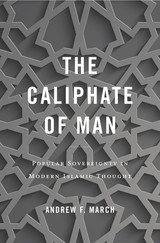
A political theorist teases out the century-old ideological transformation at the heart of contemporary discourse in Muslim nations undergoing political change.
The Arab Spring precipitated a crisis in political Islam. In Egypt Islamists have been crushed. In Turkey they have descended into authoritarianism. In Tunisia they govern but without the label of “political Islam.” Andrew March explores how, before this crisis, Islamists developed a unique theory of popular sovereignty, one that promised to determine the future of democracy in the Middle East.
This began with the claim of divine sovereignty, the demand to restore the sharīʿa in modern societies. But prominent theorists of political Islam also advanced another principle, the Quranic notion that God’s authority on earth rests not with sultans or with scholars’ interpretation of written law but with the entirety of the Muslim people, the umma. Drawing on this argument, utopian theorists such as Abū’l-Aʿlā Mawdūdī and Sayyid Quṭb released into the intellectual bloodstream the doctrine of the caliphate of man: while God is sovereign, He has appointed the multitude of believers as His vicegerent. The Caliphate of Man argues that the doctrine of the universal human caliphate underpins a specific democratic theory, a kind of Islamic republic of virtue in which the people have authority over the government and religious leaders. But is this an ideal regime destined to survive only as theory?
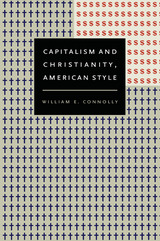
Connolly describes how the evangelical-capitalist machine works, how its themes resound across class lines, and how it infiltrates numerous aspects of American life. Proposing changes in sensibility and strategy to challenge this machine, Connolly contends that the liberal distinction between secular public and religious private life must be reworked. Traditional notions of unity or solidarity must be translated into drives to forge provisional assemblages comprised of multiple constituencies and creeds. The left must also learn from the political right how power is infused into everyday institutions such as the media, schools, churches, consumption practices, corporations, and neighborhoods. Connolly explores the potential of a “tragic vision” to contest the current politics of existential resentment and political hubris, explores potential lines of connection between it and theistic faiths that break with the evangelical right, and charts the possibility of forging an “eco-egalitarian” economy. Capitalism and Christianity, American Style is William E. Connolly’s most urgent work to date.

With socialism in eclipse and market economies gaining acceptance worldwide, a new kind of ethics is needed to address social injustice and inequity. Richard C. Bayer debunks the present direction of mainstream social ethical theory by advancing market systems themselves as a means toward promoting justice and meeting human needs.
Observing that the primary vehicle for Christian ethics since the New Deal has been the welfare state, Bayer argues instead that market systems can provide a basis for reconciling capitalism and Christianity in both theory and practice. He proposes Christian personalism as an ethical approach that emphasizes the dignity of the human person and promotes the achievement of personal development through participation in a modified market economy.
Bayer's work draws on Catholic social thought and orthodox economics, adopting a post-Keynesian approach that deemphasizes the role of the state in the achievement of economic justice. As an example of a personalist economic reform agenda, he describes a "share economy" that advances solidarity among workers, promises greater economic efficiency, and increases employee participation in profit-sharing and decision-making.
Capitalism and Christianity integrates moral arguments with economic analysis to challenge prevailing thought in contemporary Christian social ethics. By incorporating key insights of liberalism while providing constructive criticism of that perspective, it creatively addresses both personal development and the common good.
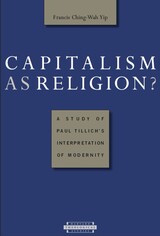
The relationship between religion and modern culture remains a controversial issue within Christian theology. This book focuses on Paul Tillich's interpretation of modern culture and the influence of capitalism, highlighting the context of his work in relation to Karl Marx and the Critical Theory of the Frankfurt School. When Tillich moved to the United States he sharpened his focus on the cultural dimensions of capitalism. Using the concept of "cultural modernity," Francis Ching-Wah Yip reconstructs Tillich's interpretation of modernity with the key categories of autonomy, self-sufficient finitude, technical reason, objectification, and dehumanization, and shows that Tillich's notion of theonomy served to underscore the problems of modernity and to develop a response.
The final section of the book relates Tillich's theology to contemporary theological interpretations of global capitalism and modernity. Yip appeals to the work of Jürgen Moltmann to argue that one should go beyond Tillich's analysis by placing much more emphasis on the material-economic basis of culture and by moving away from the Eurocentric viewpoint to a more global perspective. Finally, he draws on Émile Durkheim to show the quasi-religious dimension of capitalism as a global civil religion and as the culture of modern society.
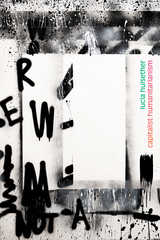
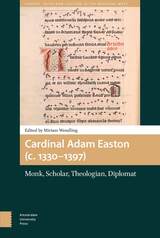

Presenting case studies from sixteen countries on five continents, The Catholic Church and the Nation-State paints a rich portrait of a complex and paradoxical institution whose political role has varied historically and geographically. In this integrated and synthetic collection of essays, outstanding scholars from the United States and abroad examine religious, diplomatic, and political actions—both admirable and regrettable—that shape our world. Kenneth R. Himes sets the context of the book by brilliantly describing the political influence of the church in the post-Vatican II era. There are many recent instances, the contributors assert, where the Church has acted as both a moral authority and a self-interested institution: in the United States it maintained unpopular moral positions on issues such as contraception and sexuality, yet at the same time it sought to cover up its own abuses; it was complicit in genocide in Rwanda but played an important role in ending the horrific civil war in Angola; and it has alternately embraced and suppressed nationalism by acting as the voice of resistance against communism in Poland, whereas in Chile it once supported opposition to Pinochet but now aligns with rightist parties.
With an in-depth exploration of the five primary challenges facing the Church—theology and politics, secularization, the transition from serving as a nationalist voice of opposition, questions of justice, and accommodation to sometimes hostile civil authorities—this book will be of interest to scholars and students in religion and politics as well as Catholic Church clergy and laity. By demonstrating how national churches vary considerably in the emphasis of their teachings and in the scope and nature of their political involvement, the analyses presented in this volume engender a deeper understanding of the role of the Roman Catholic Church in the world.
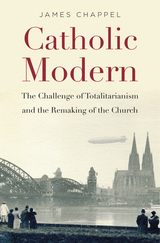
In 1900 the Catholic Church stood staunchly against human rights, religious freedom, and the secular state. According to the Catholic view, modern concepts like these, unleashed by the French Revolution, had been a disaster. Yet by the 1960s, those positions were reversed. How did this happen? Why, and when, did the world’s largest religious organization become modern?
James Chappel finds an answer in the shattering experiences of the 1930s. Faced with the rise of Nazism and Communism, European Catholics scrambled to rethink their Church and their faith. Simple opposition to modernity was no longer an option. The question was how to be modern. These were life and death questions, as Catholics struggled to keep Church doors open without compromising their core values. Although many Catholics collaborated with fascism, a few collaborated with Communists in the Resistance. Both strategies required novel approaches to race, sex, the family, the economy, and the state.
Catholic Modern tells the story of how these radical ideas emerged in the 1930s and exercised enormous influence after World War II. Most remarkably, a group of modern Catholics planned and led a new political movement called Christian Democracy, which transformed European culture, social policy, and integration. Others emerged as left-wing dissidents, while yet others began to organize around issues of abortion and gay marriage. Catholics had come to accept modernity, but they still disagreed over its proper form. The debates on this question have shaped Europe’s recent past—and will shape its future.

Once a keystone of the Democratic Party, American Catholics are today helping to put Republicans in office. This book traces changes in party allegiance and voting behavior of Catholics in national elections over the course of 150 years and explains why much of the voting bloc that supported John F. Kennedy has deserted the Democratic coalition.
William B. Prendergast analyzes the relationship between Catholics and the GOP from the 1840s to 1990s. He documents a developing attachment of Catholics to Republican candidates beginning early in this century and shows that, before Kennedy, Catholics helped elect Eisenhower, returned to the polls in support of Nixon and Reagan, and voted for a Republican Congress in 1994.
To account for this shifting allegiance, Prendergast analyzes transformations in the Catholic population, the parties, and the political environment. He attributes these changes to the Americanization of immigrants, the socioeconomic and educational advancement of Catholics, and the emergence of new issues. He also cites the growth of ecumenicism, the influence of Vatican II, the abatement of Catholic-Protestant hostility, and the decline of anti-Catholicism in the Republican party.
Clearly demonstrating a Catholic move toward political independence, Prendergast's work reveals both the realignment of voters and the influence of religious beliefs in the political arena. Provocative and informative, it confirms the opinion of pollsters that no candidate can take the vote of the largest and most diverse religious group in the nation for granted.
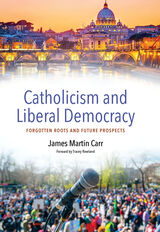

Catholic political identity and engagement defy categorization. The complexities of political realities and the human nature of such institutions as church and government often produce a more fractured reality than the pure unity depicted in doctrine. Yet, in 2003 under the leadership of then-prefect Joseph Cardinal Ratzinger (now Pope Benedict XVI), the Congregation for the Doctrine of the Faith issued a "Doctrinal Note on Some Questions Regarding the Participation of Catholics in Political Life." The note explicitly asserts, "The Christian faith is an integral unity, and thus it is incoherent to isolate some particular element to the detriment of the whole of Catholic doctrine. A political commitment to a single isolated aspect of the Church's social doctrine does not exhaust one's responsibility toward the common good." Catholics and Politics takes up the political and theological significance of this "integral unity," the universal scope of Catholic concern that can make for strange political bedfellows, confound predictable voting patterns, and leave the church poised to critique narrowly partisan agendas across the spectrum.
Catholics and Politics depicts the ambivalent character of Catholics' mainstream "arrival" in the U.S. over the past forty years, integrating social scientific, historical and moral accounts of persistent tensions between faith and power. Divided into four parts—Catholic Leaders in U.S. Politics; The Catholic Public; Catholics and the Federal Government; and International Policy and the Vatican—it describes the implications of Catholic universalism for voting patterns, international policymaking, and partisan alliances. The book reveals complex intersections of Catholicism and politics and the new opportunities for influence and risks of cooptation of political power produced by these shifts. Contributors include political scientists, ethicists, and theologians. The book will be of interest to scholars in political science, religious studies, and Christian ethics and all lay Catholics interested in gaining a deeper understanding of the tensions that can exist between church doctrine and partisan politics.

Too often, say its critics, U.S. domestic policy is founded on ideology rather than evidence. Take "Charitable Choice": legislation enacted with the assumption that faith-based organizations can offer the best assistance to the needy at the lowest cost. The Charitable Choice provision of the 1996 Welfare Reform Act—buttressed by President Bush's Faith-Based Initiative of 2000—encouraged religious organizations, including congregations, to bid on government contracts to provide social services. But in neither year was data available to prove or disprove the effectiveness of such an approach.
Charitable Choice at Work fills this gap with a comprehensive look at the evidence for and against faith-based initiatives. Sheila Suess Kennedy and Wolfgang Bielefeld review the movement's historical context along with legal analysis of constitutional concerns including privatization, federalism, and separation of church and state. Using both qualitative and, where possible, statistical data, the authors analyze the performance of job placement programs in three states with a representative range of religious, political, and demographic traits—Massachusetts, Indiana, and North Carolina. Throughout, they focus on measurable outcomes as they compare non-faith-based with faith-based organizations, nonprofits with for-profits, and the logistics of contracting before and after Charitable Choice.
Among their findings: in states where such information is available, the composition of social service contractor pools has changed very little. Reflecting their varied political cultures, states have funded programs differently. Faith-based organizations have not been eager to seek government contracts, perhaps wary of additional legal restraints and reporting burdens.
The authors conclude that faith-based organizations appear no more effective than secular organizations at government-funded social service provision, that there has been no dramatic change in the social welfare landscape since Charitable Choice, and that the constitutional concerns of its detractors may be valid. This empirical study penetrates the fog of the culture wars, moving past controversy over the role of religion in public life to offer pragmatic suggestions for policymakers and organizations who must decide how best to assist the needy.
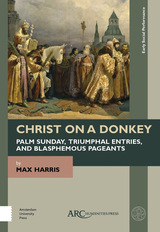
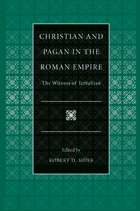
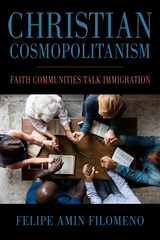


From the first rumblings of the Moral Majority over twenty years ago, the Christian Right has been marshalling its forces and maneuvering its troops in an effort to re-shape the landscape of American politics. It has fascinated social scientists and journalists as the first right-wing social movement in postwar America to achieve significant political and popular support, and it has repeatedly defied those who would step up to write its obituary. In 2000, while many touted the demise of the Christian Coalition, the broader undercurrents of the movement were instrumental in helping George W. Bush win the GOP nomination and the White House. Bush repaid that swell of support by choosing Senator John Ashcroft, once the movement's favored presidential candidate, as attorney general.
The Christian Right in American Politics, under the direction of three of the nation's leading scholars in the field of religion and politics, recognizing the movement as a force still to be reckoned with, undertakes the important task of making an historical analysis of the Christian Right in state politics during its heyday, 1980 to the millennium. Its twelve chapters, written by outstanding scholars, review the impact and influence of the Christian Right in those states where it has had its most significant presence: South Carolina, Virginia, Texas, Florida, Michigan, Iowa, Kansas, Minnesota, Colorado, California, Maine, and Oregon and Washington.
Since 1980, scholars have learned a good deal about the social characteristics, religious doctrine, and political beliefs of activists in and supporters of the Christian Right in these states, and each contribution is based on rigorous, dispassionate scholarship. The writers explore the gains and losses of the movement as it attempts to re-shape political landscapes. More precisely, they provide in-depth descriptions of the resources, organizations, and the group ecologies in which the Christian Right operates-the distinct elements that drove the movement forward.
As the editors state, "the Christian Right has been engaged in a long and torturous 'march toward the millennium,' from outsider status into the thick of American politics." Those formative years, 1980-2000, are essential for any understanding of this uniquely American social movement. This rigorous analysis over many states and many elections provides the clearest picture yet of the goals, tactics, and hopes of the Christian Right in America.
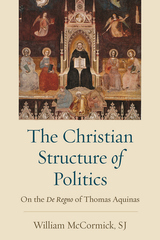
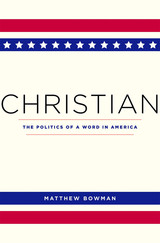
A Publishers Weekly Best Religion Book of the Year
A Choice Outstanding Academic Title
For many Americans, being Christian is central to their political outlook. Political Christianity is most often associated with the Religious Right, but the Christian faith has actually been a source of deep disagreement about what American society and government should look like. While some identify Christianity with Western civilization and unfettered individualism, others have maintained that Christian principles call for racial equality, international cooperation, and social justice. At once incisive and timely, Christian delves into the intersection of faith and political identity and offers an essential reconsideration of what it means to be Christian in America today.
“Bowman is fast establishing a reputation as a significant commentator on the culture and politics of the United States.”
—Church Times
“Bowman looks to tease out how religious groups in American history have defined, used, and even wielded the word Christian as a means of understanding themselves and pressing for their own idiosyncratic visions of genuine faith and healthy democracy.”
—Christian Century
“A fascinating examination of the twists and turns in American Christianity, showing that the current state of political/religious alignment was not necessarily inevitable, nor even probable.”
—Deseret News
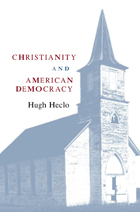
Christianity, not religion in general, has been important for American democracy. With this bold thesis, Hugh Heclo offers a panoramic view of how Christianity and democracy have shaped each other.
Heclo shows that amid deeply felt religious differences, a Protestant colonial society gradually convinced itself of the truly Christian reasons for, as well as the enlightened political advantages of, religious liberty. By the mid-twentieth century, American democracy and Christianity appeared locked in a mutual embrace. But it was a problematic union vulnerable to fundamental challenge in the Sixties. Despite the subsequent rise of the religious right and glib talk of a conservative Republican theocracy, Heclo sees a longer-term, reciprocal estrangement between Christianity and American democracy.
Responding to his challenging argument, Mary Jo Bane, Michael Kazin, and Alan Wolfe criticize, qualify, and amend it. Heclo’s rejoinder suggests why both secularists and Christians should worry about a coming rupture between the Christian and democratic faiths. The result is a lively debate about a momentous tension in American public life.
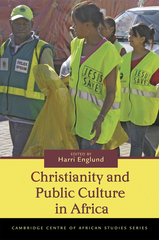
Christianity and Public Culture in Africa takes readers beyond familiar images of religious politicians and populations steeped in spirituality. It shows how critical reason and Christian convictions have combined in surprising ways as African Christians confront issues such as national constitutions, gender relations, and the continuing struggle with HIV/AIDS.
The wide-ranging essays included here explore rural Africa and the continent’s major cities, colonial and missionary legacies, and mass media images in the twenty-first century. They also reveal the diversity of Pentecostalism in Africa and highlight the region’s remarkable denominational diversity. Scholars and students alike will find these essays timely and impressive.
The contributors demonstrate how the public significance of Christianity varies across time and place. They explore rural Africa and the continent’s major cities, and colonial and missionary situations, as well as mass-mediated ideas and images in the twenty-first century. They also reveal the plurality of Pentecostalism in Africa and keep in view the continent’s continuing denominational diversity. Studentsand scholars will find these topical studies to be impressive in scope.
Contributors: Barbara M. Cooper, Harri Englund, Marja Hinfelaar, Nicholas Kamau-Goro, Birgit Meyer, Michael Perry Kweku Okyerefo, Damaris Parsitau, Ruth Prince, James A. Pritchett, Ilana van Wyk
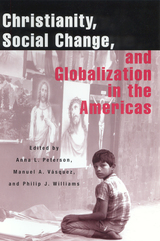
Organized around three central themes-family, youth, and community; democratization, citizenship, and political participation; and immigration and transnationalism-the book argues that, at the local level, religion helps people, especially women and youths, solidify their identities and confront the challenges of the modern world. Religious communities are seen as both peaceful venues for people to articulate their needs, and forums for building participatory democracies in the Americas. Finally, the contributors examine how religion enfranchises poor women, youths, and people displaced by war or economic change and, at the same time, drives social movements that seek to strengthen family and community bonds disrupted by migration and political violence.
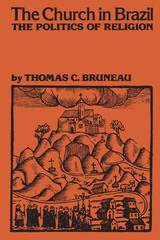
In 1980, Brazil was the largest Roman Catholic country in the world, with 90 percent of its more than 120 million people numbered among the faithful. The Church hierarchy became aware, however, that the religion practiced by the majority of its members was not that promoted by the institution, a point dramatized by the rapid growth of other religious movements in Brazil—particularly Protestant sects and spirit-possession cults. In response, the Church created and assumed new roles. The Church in Brazil is a case study of the changes within the Church and their impact on Brazilian society.
In an original and illuminating discussion, Thomas Bruneau combines institutional analysis and survey data to explore the relationship between structural changes in the Church and evolving patterns of practice and belief. His discussion displays the richness and variety of devotion in Brazil—characteristics recognized by many observers—and examines the Church's potential for influencing the people's religious life.
Moving from the historical and national to the regional, Bruneau analyzes and compares changes among eight dioceses. He concludes that the Church is actively promoting a progressive social role for itself and, by backing its statements with actions, is perceived as being socially effective by both supporters and opponents.
The first study in which the national and diocesan levels of the Church are analyzed together, it is also the first to inspect systematically the Basic Christian Communities, thought by some to be the most significant grass-roots movement in the Catholic world of that time.
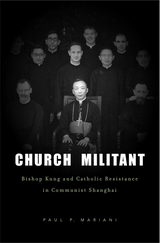
By 1952 the Chinese Communist Party had suppressed all organized resistance to its regime and stood unopposed, or so it has been believed. Internal party documents—declassified just long enough for historian Paul Mariani to send copies out of China—disclose that one group deemed an enemy of the state held out after the others had fallen. A party report from Shanghai marked “top-secret” reveals a determined, often courageous resistance by the local Catholic Church. Drawing on centuries of experience in struggling with the Chinese authorities, the Church was proving a stubborn match for the party.
Mariani tells the story of how Bishop (later Cardinal) Ignatius Kung Pinmei, the Jesuits, and the Catholic Youth resisted the regime’s punishing assault on the Shanghai Catholic community and refused to renounce the pope and the Church in Rome. Acting clandestinely, mirroring tactics used by the previously underground CCP, Shanghai’s Catholics persevered until 1955, when the party arrested Kung and 1,200 other leading Catholics. The imprisoned believers were later shocked to learn that the betrayal had come from within their own ranks.
Though the CCP could not eradicate the Catholic Church in China, it succeeded in dividing it. Mariani’s secret history traces the origins of a deep split in the Chinese Catholic community, where relations between the “Patriotic” and underground churches remain strained even today.

This contribution to European historical literature--based on extensive research in Madrid--provides a clear and dispassionate account of successive ecclesiastical-secular conflicts and controversies, and deftly summarizes the diverse ideological and intellectual currents of the times.
Nowhere in Europe has the Roman Catholic Church exerted a more mystical hold on the life of a nation than it has in Spain. Yet this hold has not been unchanging or unchallenged. By the mid-eighteenth century the Church was no longer the only legitimate source of authority, the all-pervasive presence that it had been, most forcefully in the late fifteenth and sixteenth centuries. Still, its power remained formidable. The Spanish Church imposed standards of conduct over the entire range of society, from the aristocracy to the peasant masses, and it possessed the material resources necessary to maintain an elaborate ecclesiastical network that influenced every aspect of Spanish life.
The heart of the book deals with the reactions of the Church to the dramatic, sometimes violent, changes that occurred during the critical nineteenth-century period of national transition from royal absolutism to popular liberalism. The study examines the responses of the Church to the new social and political forces that could no longer be excluded or contained, among them an emergent secular--even anticlerical--culture and a developing capitalism.Callahan demonstrates that these changes engendered resentments and frustrations deep within the ecclesiastical order that persisted well into the twentieth century, notably with the Spanish Church's embrace of Franco.
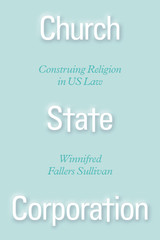
Through readings of the opinions of the US Supreme Court and other legal texts, Sullivan shows how “the church” as a religious collective is granted special privilege in US law. In-depth analyses of Hosanna-Tabor v. EEOC and Burwell v. Hobby Lobby reveal that the law tends to honor the religious rights of the group—whether in the form of a church, as in Hosanna-Tabor, or in corporate form, as in Hobby Lobby—over the rights of the individual, offering corporate religious entities an autonomy denied to their respective members. In discussing the various communities that construct the “church-shaped space” in American law, Sullivan also delves into disputes over church property, the legal exploitation of the black church in the criminal justice system, and the recent case of Masterpiece Cakeshop v. Colorado Civil Rights Commission. Brimming with insight, Church State Corporation provocatively challenges our most basic beliefs about the ties between religion and law in ostensibly secular democracies.
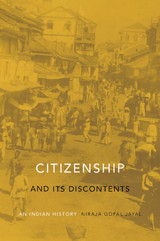
Breaking new ground in scholarship, Niraja Jayal writes the first history of citizenship in the largest democracy in the world—India. Unlike the mature democracies of the west, India began as a true republic of equals with a complex architecture of citizenship rights that was sensitive to the many hierarchies of Indian society. In this provocative biography of the defining aspiration of modern India, Jayal shows how the progressive civic ideals embodied in the constitution have been challenged by exclusions based on social and economic inequality, and sometimes also, paradoxically, undermined by its own policies of inclusion.
Citizenship and Its Discontents explores a century of contestations over citizenship from the colonial period to the present, analyzing evolving conceptions of citizenship as legal status, as rights, and as identity. The early optimism that a new India could be fashioned out of an unequal and diverse society led to a formally inclusive legal membership, an impulse to social and economic rights, and group-differentiated citizenship. Today, these policies to create a civic community of equals are losing support in a climate of social intolerance and weak solidarity. Once seen by Western political scientists as an anomaly, India today is a site where every major theoretical debate about citizenship is being enacted in practice, and one that no global discussion of the subject can afford to ignore.
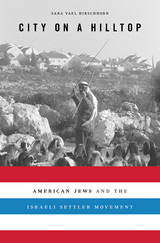
Since 1967, more than 60,000 Jewish-Americans have settled in the territories captured by the State of Israel during the Six Day War. Comprising 15 percent of the settler population today, these immigrants have established major communities, transformed domestic politics and international relations, and committed shocking acts of terrorism. They demand attention in both Israel and the United States, but little is known about who they are and why they chose to leave America to live at the center of the Israeli-Palestinian conflict.
In this deeply researched, engaging work, Sara Yael Hirschhorn unsettles stereotypes, showing that the 1960s generation who moved to the occupied territories were not messianic zealots or right-wing extremists but idealists engaged in liberal causes. They did not abandon their progressive heritage when they crossed the Green Line. Rather, they saw a historic opportunity to create new communities to serve as a beacon—a “city on a hilltop”—to Jews across the globe. This pioneering vision was realized in their ventures at Yamit in the Sinai and Efrat and Tekoa in the West Bank. Later, the movement mobilized the rhetoric of civil rights to rebrand itself, especially in the wake of the 1994 Hebron massacre perpetrated by Baruch Goldstein, one of their own.
On the fiftieth anniversary of the 1967 war, Hirschhorn illuminates the changing face of the settlements and the clash between liberal values and political realities at the heart of the Israeli-Palestinian conflict.
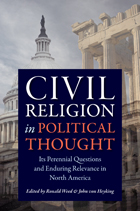

Developments in biotechnology, such as cloning and the decoding of the human genome, are generating questions and choices that traditionally have fallen within the realm of religion and philosophy: the definition of human life, human vs. divine control of nature, the relationship between human and non-human life, and the intentional manipulation of the mechanisms of life and death.
In Claiming Power over Life, eight contributors challenge policymakers to recognize the value of religious views on biotechnology and discuss how best to integrate the wisdom of the Christian and Jewish traditions into public policy debates. Arguing that civic discourse on the subject has been impoverished by an inability to accommodate religious insights productively, they identify the ways in which religious thought can contribute to policymaking. Likewise, the authors challenge religious leaders and scholars to learn about biotechnology, address the central issues it raises, and participate constructively in the moral debates it engenders.
The book will be of value to policymakers, religious leaders, ethicists, and all those interested in issues surrounding the intersection of religion and biotechnology policy.
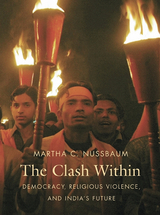
While America is focused on religious militancy and terrorism in the Middle East, democracy has been under siege from religious extremism in another critical part of the world. As Martha Nussbaum reveals in this penetrating look at India today, the forces of the Hindu right pose a disturbing threat to its democratic traditions and secular state.
Since long before the 2002 Gujarat riots--in which nearly two thousand Muslims were killed by Hindu extremists--the power of the Hindu right has been growing, threatening India's hard-won constitutional practices of democracy, tolerance, and religious pluralism. Led politically by the Bharatiya Janata Party, the Hindu right has sought the subordination of other religious groups and has directed particular vitriol against Muslims, who are cast as devils in need of purging. The Hindu right seeks to return to a "pure" India, unsullied by alien polluters of other faiths, yet the BJP's defeat in recent elections demonstrates the power that India's pluralism continues to wield. The future, however, is far from secure, and Hindu extremism and exclusivity remain a troubling obstacle to harmony in South Asia.
Nussbaum's long-standing professional relationship with India makes her an excellent guide to its recent history. Ultimately she argues that the greatest threat comes not from a clash between civilizations, as some believe, but from a clash within each of us, as we oscillate between self-protective aggression and the ability to live in the world with others. India's story is a cautionary political tale for all democratic states striving to act responsibly in an increasingly dangerous world.
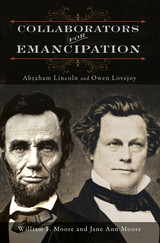
In Collaborators for Emancipation: Abraham Lincoln and Owen Lovejoy, the authors examine the thorny issue of the pragmatism typically ascribed to Lincoln versus the radicalism of Lovejoy, and the role each played in ending slavery. Exploring the men's politics, personal traits, and religious convictions, the book traces their separate paths in life as well as their frequent interactions. Collaborators for Emancipation shows how Lincoln and Lovejoy influenced one another and analyzes the strategies and systems of belief each brought to the epic controversies of slavery versus abolition and union versus disunion.
Moore and Moore, editors of a previous volume of Lovejoy's writings, use their deep knowledge of his words and life to move beyond mere politics to a nuanced perspective on the fabric of religion and personal background that underlay the minister's worldview. Their multifaceted work of history and biography reveals how Lincoln embraced the radical idea of emancipation, and how Lovejoy shaped his own radicalism to wield the pragmatic political tools needed to reach that ultimate goal.

Twice in this century popular revolts against colonial rule have occured in the Banten district of West Java. These revolts, conducted largely under an Islamic leadership, also proclaimed themselves Communist. Islamic Communism is seemingly a paradox. This is especially the case when one considers that probably no religion has proved more resistant to Communist ideology than Islam.
Michael Williams here details the complicated history of the Bantenese revolts in the twentieth century and probes the ideological riddle of Islamic Communism. Modern history is replete with examples of regions with a long history of organizing themselves politically to resist intrusion on their territory, resources, and people. This book establishes that in Indonesia, the Bantenese were among the most practiced exponents of resistance.
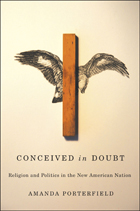
Americans have long acknowledged a deep connection between evangelical religion and democracy in the early days of the republic. This is a widely accepted narrative that is maintained as a matter of fact and tradition—and in spite of evangelicalism’s more authoritarian and reactionary aspects.
In Conceived in Doubt, Amanda Porterfield challenges this standard interpretation of evangelicalism’s relation to democracy and describes the intertwined relationship between religion and partisan politics that emerged in the formative era of the early republic. In the 1790s, religious doubt became common in the young republic as the culture shifted from mere skepticism toward darker expressions of suspicion and fear. But by the end of that decade, Porterfield shows, economic instability, disruption of traditional forms of community, rampant ambition, and greed for land worked to undermine heady optimism about American political and religious independence. Evangelicals managed and manipulated doubt, reaching out to disenfranchised citizens as well as to those seeking political influence, blaming religious skeptics for immorality and social distress, and demanding affirmation of biblical authority as the foundation of the new American national identity.
As the fledgling nation took shape, evangelicals organized aggressively, exploiting the fissures of partisan politics by offering a coherent hierarchy in which God was king and governance righteous. By laying out this narrative, Porterfield demolishes the idea that evangelical growth in the early republic was the cheerful product of enthusiasm for democracy, and she creates for us a very different narrative of influence and ideals in the young republic.
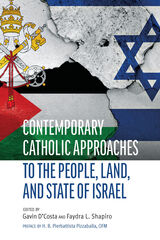
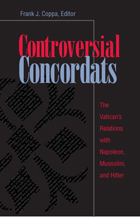
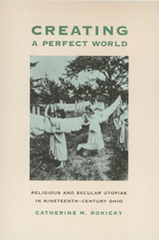
Powerful currents of religious revival and political and social reform swept nineteenth-century America. Many people expressed their radical religious and social ideals by creating or joining self-contained utopian communities. These utopianists challenged the existing social and economic order with alternative notions about religion, marriage, family, sexuality, property ownership, and wage labor.
Between 1787 and 1919, approximately 270 utopian communities existed in the United States. Due to its unique location on the young nation’s frontier, the state of Ohio was the site of much of this activity.
Creating a Perfect World examines Ohio’s utopian movements, both religious and secular. These include the United Society of Believers in Christ’s Second Coming, or Shakers; the Society of Separatists at Zoar; the Mormons, who stopped in the state for several years on their way west; and several societies based on the philosophies of European social reformers Robert Owen and Charles Fourier.
In this detailed account of a unique and fascinating chapter in Ohio’s history, Catherine M. Rokicky profiles these communities and explores their ideals, how and why they were established, their leaders, and their members’ reasons for joining and sometimes leaving. She also examines the roles men and women played, their approaches to communal living and community property, their economic activities, their relations with surrounding communities and the state, and the various reasons for their success or failure.
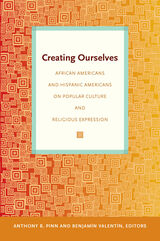
Corresponding to a particular form of popular culture, each section features two essays, one by an African American scholar and one by a Latino/a scholar, as well as a short response by each scholar to the other’s essay. The essays and responses are lively, varied, and often personal. One contributor puts forth a “brown” theology of hip hop that celebrates hybridity, contradiction, and cultural miscegenation. Another analyzes the content of the message transmitted by African American evangelical preachers who have become popular sensations through television broadcasts, video distribution, and Internet promotions. The other essays include a theological reading of the Latina body, a consideration of the “authenticity” of representations of Jesus as white, a theological account of the popularity of telenovelas, and a reading of African American ideas of paradise in one of Toni Morrison’s novels. Creating Ourselves helps to make popular culture available as a resource for theology and religious studies and for facilitating meaningful discussions across racial and ethnic boundaries.
Contributors. Teresa Delgado, James H. Evans Jr., Joseph De León, Cheryl Kirk-Duggan, Angel F. Méndez Montoya, Alexander Nava, Anthony B. Pinn, Mayra Rivera, Suzanne E. Hoeferkamp Segovia, Benjamín Valentín, Jonathan L. Walton, Traci C. West, Nancy Lynne Westfield, Sheila F. Winborne
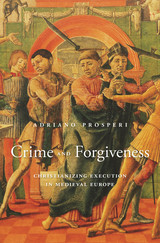
A provocative analysis of how Christianity helped legitimize the death penalty in early modern Europe, then throughout the Christian world, by turning execution into a great cathartic public ritual and the condemned into a Christ-like figure who accepts death to save humanity.
The public execution of criminals has been a common practice ever since ancient times. In this wide-ranging investigation of the death penalty in Europe from the fourteenth to the eighteenth century, noted Italian historian Adriano Prosperi identifies a crucial period when legal concepts of vengeance and justice merged with Christian beliefs in repentance and forgiveness.
Crime and Forgiveness begins with late antiquity but comes into sharp focus in fourteenth-century Italy, with the work of the Confraternities of Mercy, which offered Christian comfort to the condemned and were for centuries responsible for burying the dead. Under the brotherhoods’ influence, the ritual of public execution became Christianized, and the doomed person became a symbol of the fallen human condition. Because the time of death was known, this “ideal” sinner could be comforted and prepared for the next life through confession and repentance. In return, the community bearing witness to the execution offered forgiveness and a Christian burial. No longer facing eternal condemnation, the criminal in turn publicly forgave the executioner, and the death provided a moral lesson to the community.
Over time, as the practice of Christian comfort spread across Europe, it offered political authorities an opportunity to legitimize the death penalty and encode into law the right to kill and exact vengeance. But the contradictions created by Christianity’s central role in executions did not dissipate, and squaring the emotions and values surrounding state-sanctioned executions was not simple, then or now.
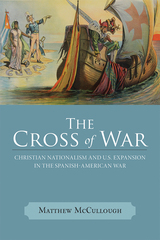
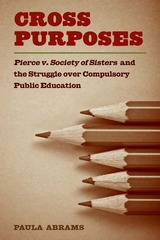
"A definitive study of an extremely important, though curiously neglected, Supreme Court decision, Pierce v. Society of Sisters."
---Robert O'Neil, Professor of Law Emeritus, University of Virginia School of Law
---Richard W. Garnett, Professor of Law and Associate Dean, Notre Dame Law School
"A well-written, well-researched blend of law, politics, and history."
---Joan DelFattore, Professor of English and Legal Studies, University of Delaware
In 1922, the people of Oregon passed legislation requiring all children to attend public schools. For the nativists and progressives who had campaigned for the Oregon School Bill, it marked the first victory in a national campaign to homogenize education---and ultimately the populace. Private schools, both secular and religious, vowed to challenge the law. The Catholic Church, the largest provider of private education in the country and the primary target of the Ku Klux Klan campaign, stepped forward to lead the fight all the way to the U.S. Supreme Court.
In Pierce v. Society of Sisters (1925), the court declared the Oregon School Bill unconstitutional and ruled that parents have the right to determine how their children should be educated. Since then, Pierce has provided a precedent in many cases pitting parents against the state.
Paula Abrams is Professor of Constitutional Law at Lewis & Clark Law School.
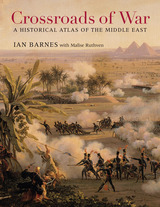
From the Bronze Age to the twenty-first century, vying armies have clashed over the territory stretching from the Upper Nile to modern-day Iraq and Iran. Crossroads of War captures five millennia of conflict and conquest in detailed full-color maps, accompanied by incisive, accessible commentary.
The lands of the Middle East were home to a succession of empires—Egyptian, Babylonian, Assyrian, and Persian—that rose and declined with the fortunes of battle. Kings and generals renowned in history bestrode the region: Nebuchadnezzar, David, Alexander the Great, Saladin, Napoleon. The religions of Zoroastrianism, Judaism, Christianity, and Islam were born here and from the beginning became embroiled in conflicts ranging from the Maccabean Revolt to Muhammad’s Arabian conquests to the Christian Crusades. In the twentieth century, the Middle East witnessed the collapse of the Ottoman Empire and played a role in the grim dramas of two world wars, as T. E. Lawrence helped spark the Arab Revolt and General Bernard Montgomery defeated Hitler’s Desert Fox, General Erwin Rommel, at El Alamein.
From the Yom Kippur War and Operation Desert Storm to a Global War on Terror that still looms over the twenty-first century, the Middle East continues to be shaped by the vagaries and vicissitudes of military conflict. Ian Barnes’s Crossroads of War offers valuable insights into the part of the world that first cradled civilization and then imagined its demise in a final clash of armies at Armageddon.
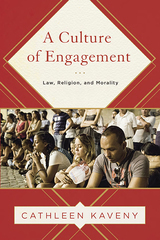
Religious traditions in the United States are characterized by ongoing tension between assimilation to the broader culture, as typified by mainline Protestant churches, and defiant rejection of cultural incursions, as witnessed by more sectarian movements such as Mormonism and Hassidism. However, legal theorist and Catholic theologian Cathleen Kaveny contends there is a third possibility—a culture of engagement—that accommodates and respects tradition. It also recognizes the need to interact with culture to remain relevant and to offer critiques of social, political, legal, and economic practices.
Kaveny suggests that rather than avoid the crisscross of the religious and secular spheres of life, we should use this conflict as an opportunity to come together and to encounter, challenge, contribute to, and correct one another. Focusing on five broad areas of interest—Law as a Teacher, Religious Liberty and Its Limits, Conversations about Culture, Conversations about Belief, and Cases and Controversies—Kaveny demonstrates how thoughtful and purposeful engagement can contribute to rich, constructive, and difficult discussions between moral and cultural traditions.
This provocative collection of Kaveny's articles from Commonweal magazine, substantially revised and updated from their initial publication, provides astonishing insight into a range of hot-button issues like abortion, assisted suicide, government-sponsored torture, contraception, the Ashley Treatment, capital punishment, and the role of religious faith in a pluralistic society. At turns masterful and inspirational, A Culture of Engagement is a welcome reminder of what can be gained when a diversity of experiences and beliefs is brought to bear on American public life.
READERS
Browse our collection.
PUBLISHERS
See BiblioVault's publisher services.
STUDENT SERVICES
Files for college accessibility offices.
UChicago Accessibility Resources
home | accessibility | search | about | contact us
BiblioVault ® 2001 - 2024
The University of Chicago Press









